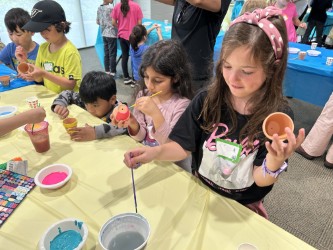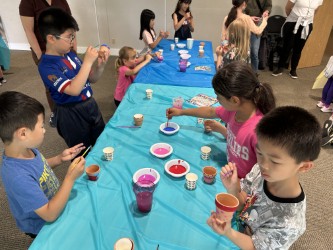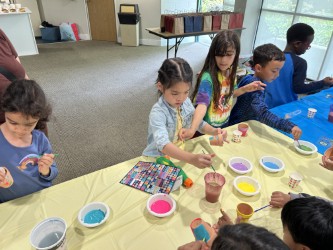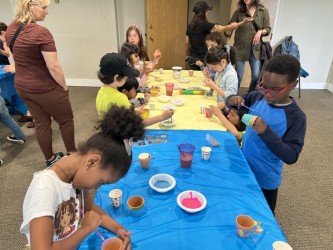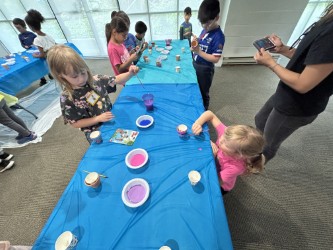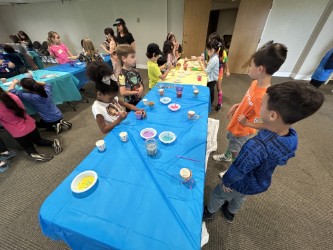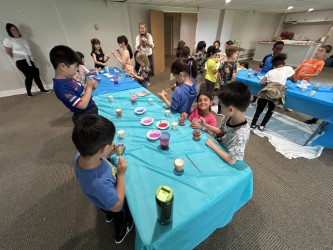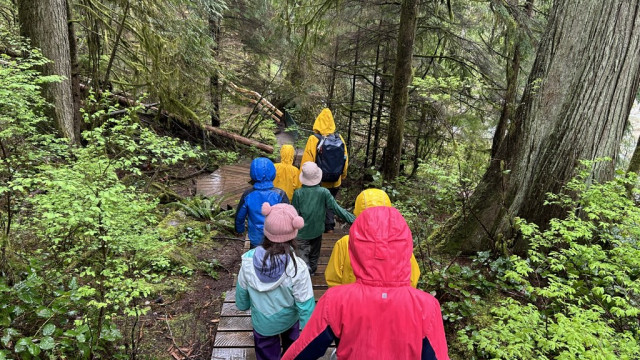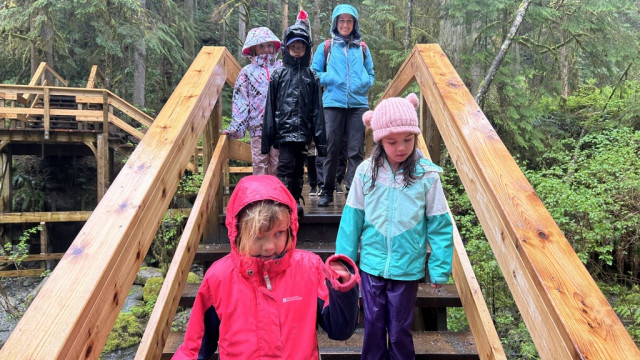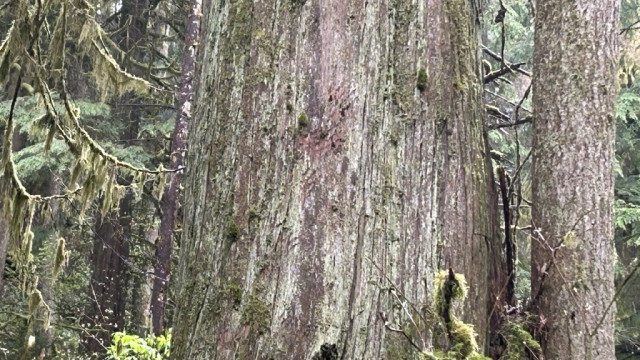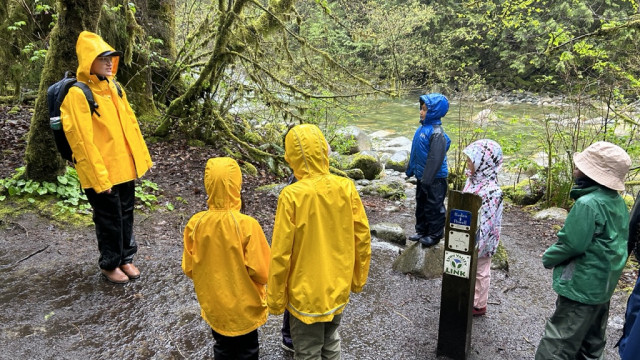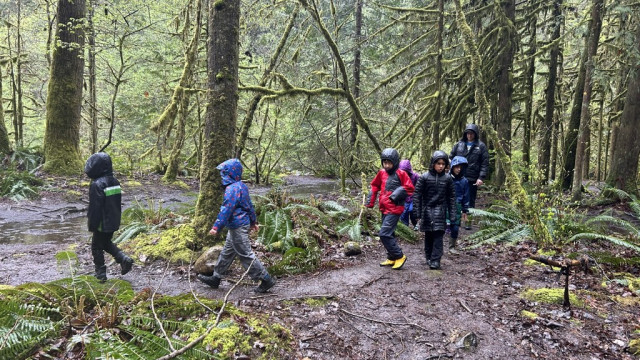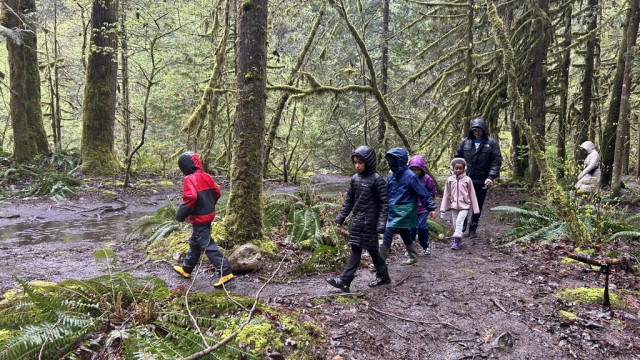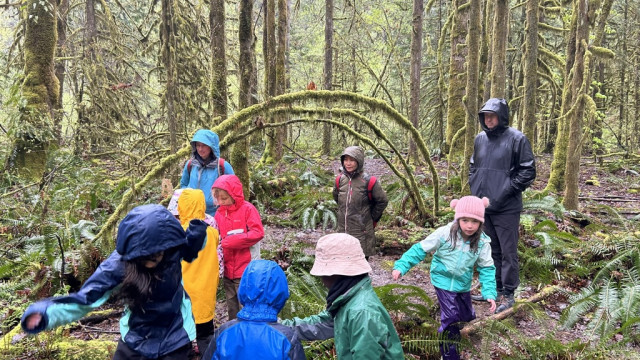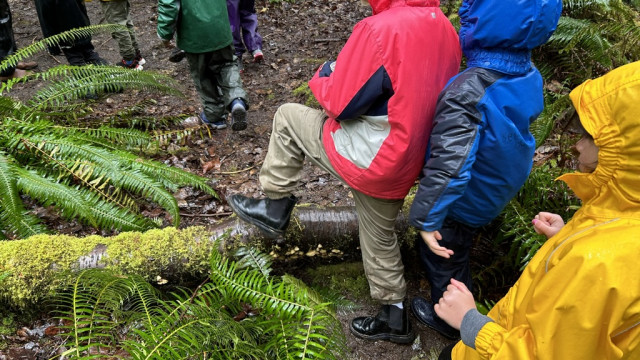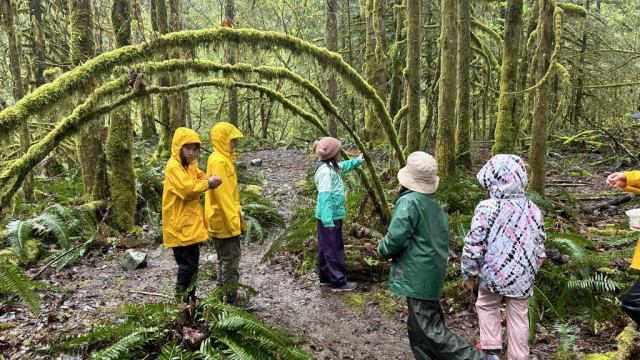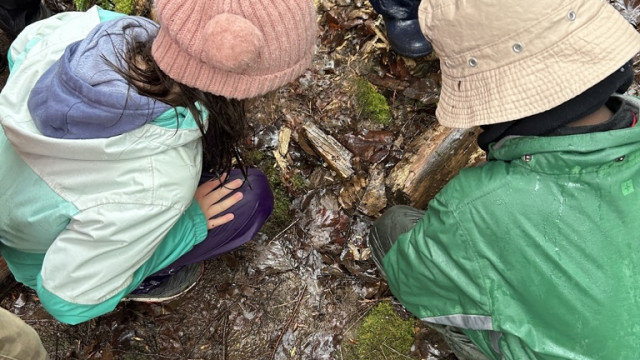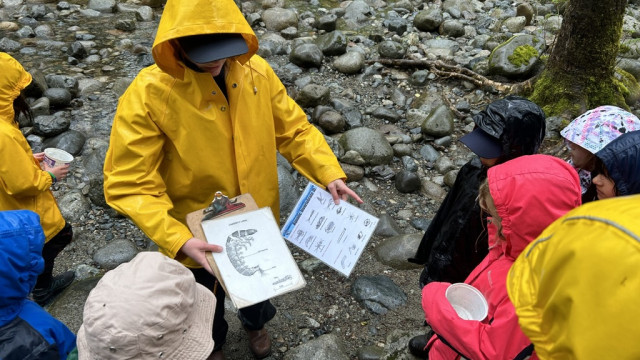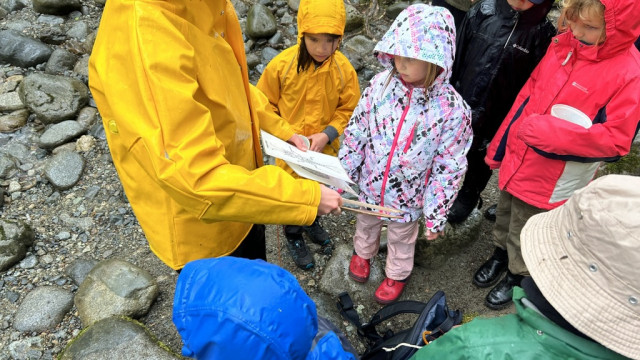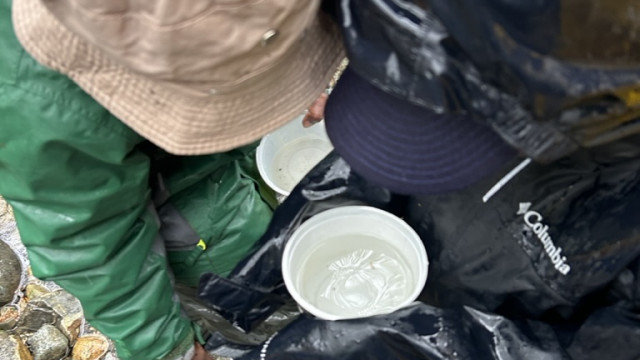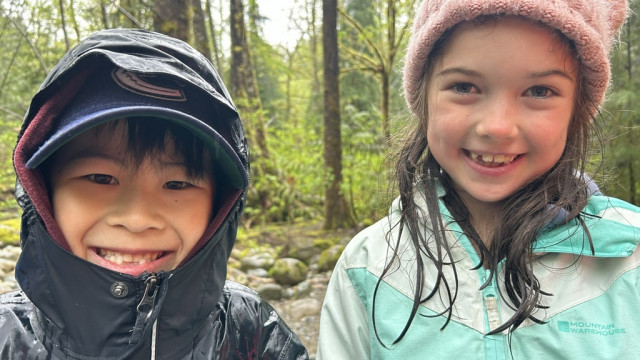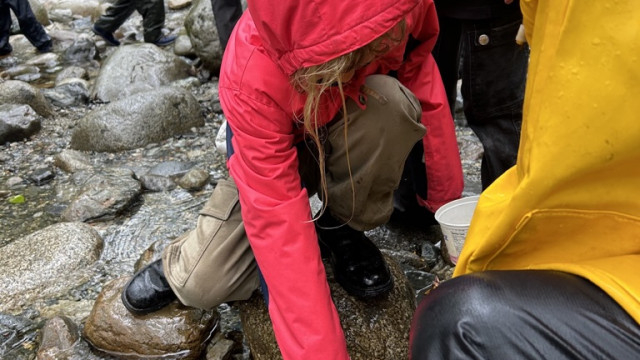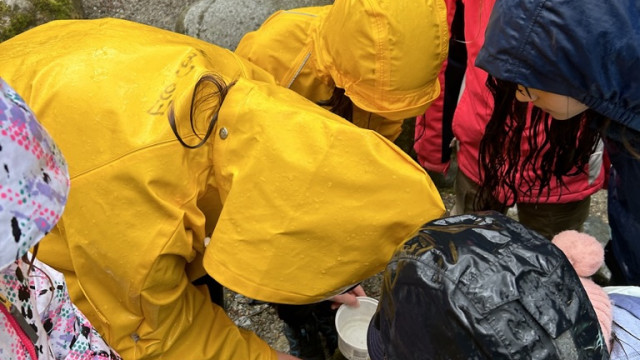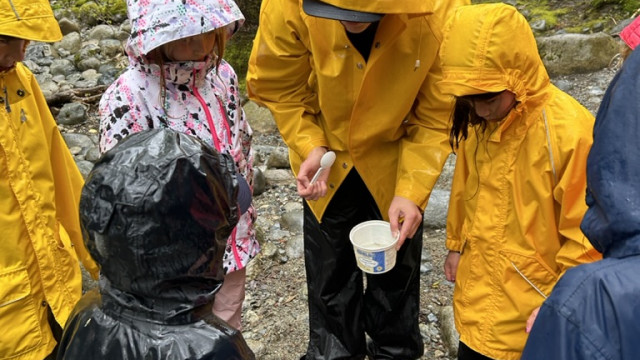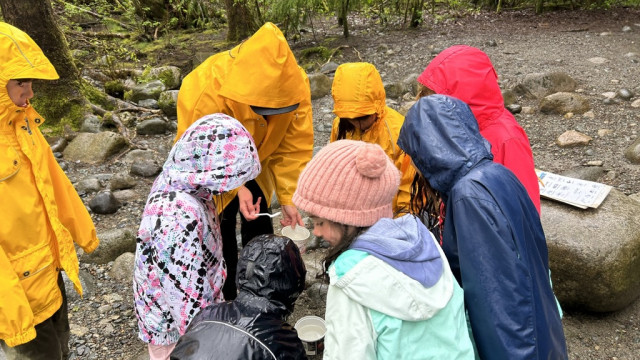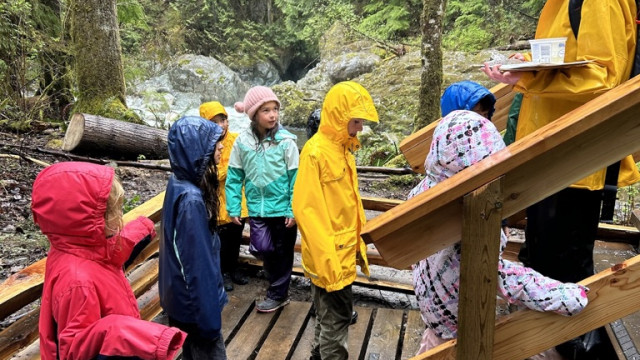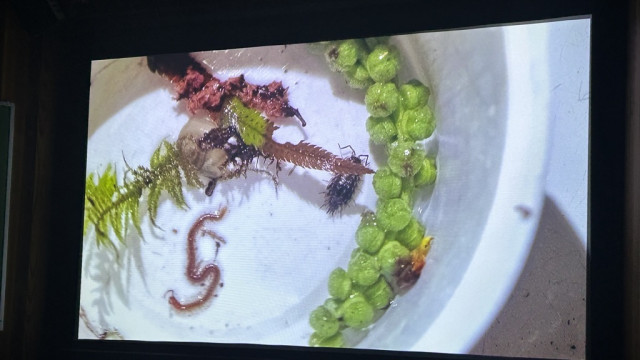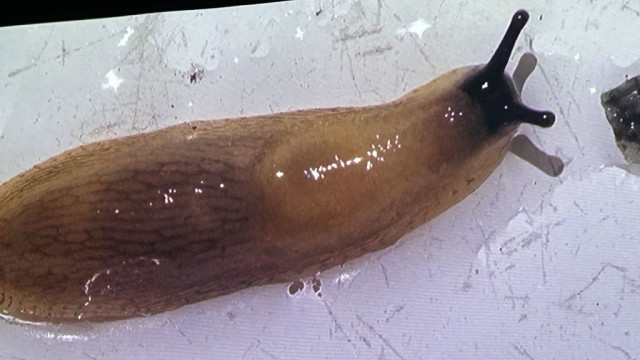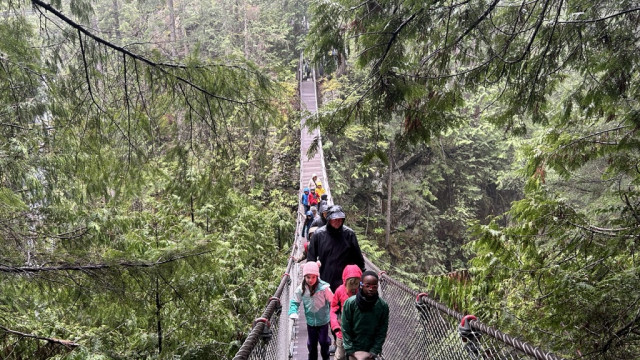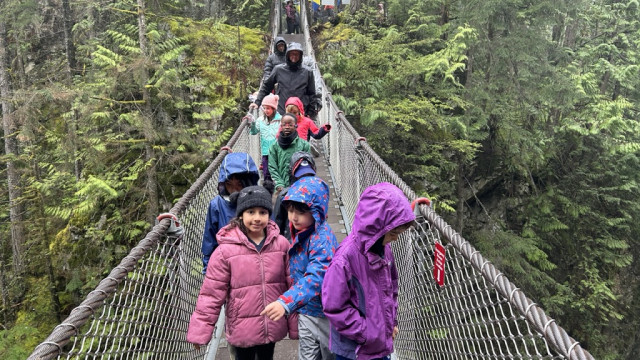Tuesday was our amazing field trip to the Heights Garden, just a short walk away from the school. Anastasia and Nimira (Div. 15) organized this field trip and Katy also helped teach the students. Divisions 15 and 16 learned so much about plants, gardening, growing, and edible and medicinal herbs grown in a garden. We were adventurous and tried some new herbs: mint, lemon balm and fennel! The students also went on a scavenger hunt to find things around the garden. Then we learned about the life cycle of plants. After that, we painted pots (pictured above) and were given dirt and seeds to plant in the pot. Anastasia and Nimira also organized for the students to have hot chocolate and a sweet treat. The students loved the day so much! Thank you to Heather who helped us to get the kids safely to the garden. Please take a walk down to the garden and your child can share with you some of the amazing things they learned there and introduce you to the garden.
Big Ideas:
- Living things have life cycles adapted to their environment
- Objects and shapes have attributes that can be described, measured, and compared
- Designs grow out of natural curiosity
Curricular Competencies:
- Explain how participation in outdoor activities supports connections with the community and environment
- Engage in problem-solving experiences that are connected to place, story, cultural practices, and perspectives relevant to local First Peoples communities, the local community, and other cultures
- Demonstrate curiosity and a sense of wonder about the world
- Experience and interpret the local environment
- Make simple predictions about familiar objects and events
- Consider some environmental consequences of their actions
- Compare observations with those of others
- Generate and introduce new or refined ideas when problem solving
Learning Involved:
- Identifying the life cycle of plants
- Relationships between people and the environment in different communities
First Peoples Principles of Learning:
- Learning ultimately supports the well-being of the self, the family, the community, the land, the spirits, and the ancestors
- Learning is holistic, reflexive, reflective, experiential, and relational
Core Competencies:
Thinking – Critical and Reflective Thinking
- Students think critically to develop ideas. They work with clear purpose and consider the potential uses of their work. They explore possibilities, develop and reflect on processes, monitor progress, and adjust procedures in light of criteria and feedback.
Communication – Collaboration
- Students combine their efforts with those of others to effectively accomplish learning and tasks. As members of a group, they appreciate interdependence and cooperation, commit to needed roles and responsibilities, and are conscientious about contributing.
Personal and Social – Social Awareness and Responsibility
- Students develop awareness of and take responsibility for their social, physical, and natural environments by working independently and collaboratively for the benefit of others, communities, and the environment. They are aware of the impact of their decisions, actions, and footprint.
